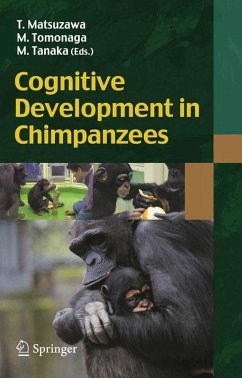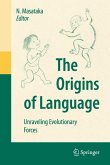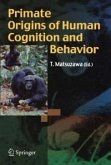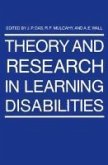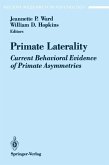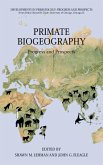From an evolutionary perspective, understanding chimpanzees offers a way of understanding the basis of human nature. This book on cognitive development in chimpanzees is the first of its kind to focus on infants reared by their own mothers within a natural setting, illustrating various aspects of chimpanzee cognition and the developmental changes that accompany them. The subjects of this book are chimpanzees of three generations inhabiting an enriched environment as well as a wild community in West Africa; and phenomena such as face recognition, concept formation, object manipulation, tool manufacture and use, decision making, learning, communication, self-awareness, intentionality, understanding others' minds, cooperation, deception, altruism, and reciprocity observed within these groups are reported herein. Unique approaches both in the field and in the laboratory go hand in hand to illustrate the cognitive world of our closest living evolutionary relatives.
Dieser Download kann aus rechtlichen Gründen nur mit Rechnungsadresse in A, B, BG, CY, CZ, D, DK, EW, E, FIN, F, GR, HR, H, IRL, I, LT, L, LR, M, NL, PL, P, R, S, SLO, SK ausgeliefert werden.
From the reviews:
"An edited volume answering my earnest request to broaden our treatment of cognitive development. ... I add to the list offered by Matsuzawa three more features that distinguish this volume. The first is the inclusion of material that is not explicitly developmental. ... The second ... is the depth of knowledge about individuals, particularly among the members of the KUPRI community. ... The third distinguishing feature of the volume is the use in several of the studies of the 'participation observation' method ... ." (Dorothy M. Fragaszy, Primates, 2006)
"The book ... offers fascinating insights into the cognitive life of our closest extant relatives. ... The book addresses a broad audience and will be fascinating for readers with different specializations, not only because of the topics but also because of the easily accessible style. The authors integrate their own remarkable findings with thoughtful discussions of decades of research. ... Every chapter in this book provides some novel insights, often in combination with a review on the state of the art in the respective topic." (Signe Preuschoft and Christine Hrubesch, Folio Primatologica, Vol. 78, 2007)
"This book is the first of its kind to cover such a broad range of topics concerning chimpanzee development ... . it is easy for me to declare that this book represents a landmark contribution to the study of the comparative development of humans and chimpanzees. It is a must read for students and experts interested in cognitive development, human evolution and the cognitive neurosciences." (Brian Hare, Nature Neuroscience, Vol. 10 (9), 2007)
"The excellence of the research and the clarity of the presentation lead to the charm of the book ... . Anyone interested in primates-indeed, anyone interest in how animal behavior can best be studied thoughtfully and humanely-will find reason to be grateful for this work and thereby to the editors, authors ... . Who will profit from reading this book? Any primatologist who wants to achieve both breadth and depth in the field; any one interested in the long-term and humane study of animal life." (Douglas K. Candland, International Journal of Primatology, Vol. 28, 2007)
"This is an important book for researchers, graduate and advanced undergraduate students, conservationists, and professionals working with great apes, especially captives. ... an excellent reference and guide for those interested in effective and responsible approaches to the study of great ape cognition. It is also accessible and relevant to readers from any discipline ... . This book is a substantial contribution to comparative work on great ape cognition and cognitive evolution for its impressive findings and for the depth to which it integrates developmental considerations." (Anne E. Russon and Laura C. Adams, American Journal of Physical Anthropology, Vol. 135, 2008)
"An edited volume answering my earnest request to broaden our treatment of cognitive development. ... I add to the list offered by Matsuzawa three more features that distinguish this volume. The first is the inclusion of material that is not explicitly developmental. ... The second ... is the depth of knowledge about individuals, particularly among the members of the KUPRI community. ... The third distinguishing feature of the volume is the use in several of the studies of the 'participation observation' method ... ." (Dorothy M. Fragaszy, Primates, 2006)
"The book ... offers fascinating insights into the cognitive life of our closest extant relatives. ... The book addresses a broad audience and will be fascinating for readers with different specializations, not only because of the topics but also because of the easily accessible style. The authors integrate their own remarkable findings with thoughtful discussions of decades of research. ... Every chapter in this book provides some novel insights, often in combination with a review on the state of the art in the respective topic." (Signe Preuschoft and Christine Hrubesch, Folio Primatologica, Vol. 78, 2007)
"This book is the first of its kind to cover such a broad range of topics concerning chimpanzee development ... . it is easy for me to declare that this book represents a landmark contribution to the study of the comparative development of humans and chimpanzees. It is a must read for students and experts interested in cognitive development, human evolution and the cognitive neurosciences." (Brian Hare, Nature Neuroscience, Vol. 10 (9), 2007)
"The excellence of the research and the clarity of the presentation lead to the charm of the book ... . Anyone interested in primates-indeed, anyone interest in how animal behavior can best be studied thoughtfully and humanely-will find reason to be grateful for this work and thereby to the editors, authors ... . Who will profit from reading this book? Any primatologist who wants to achieve both breadth and depth in the field; any one interested in the long-term and humane study of animal life." (Douglas K. Candland, International Journal of Primatology, Vol. 28, 2007)
"This is an important book for researchers, graduate and advanced undergraduate students, conservationists, and professionals working with great apes, especially captives. ... an excellent reference and guide for those interested in effective and responsible approaches to the study of great ape cognition. It is also accessible and relevant to readers from any discipline ... . This book is a substantial contribution to comparative work on great ape cognition and cognitive evolution for its impressive findings and for the depth to which it integrates developmental considerations." (Anne E. Russon and Laura C. Adams, American Journal of Physical Anthropology, Vol. 135, 2008)

